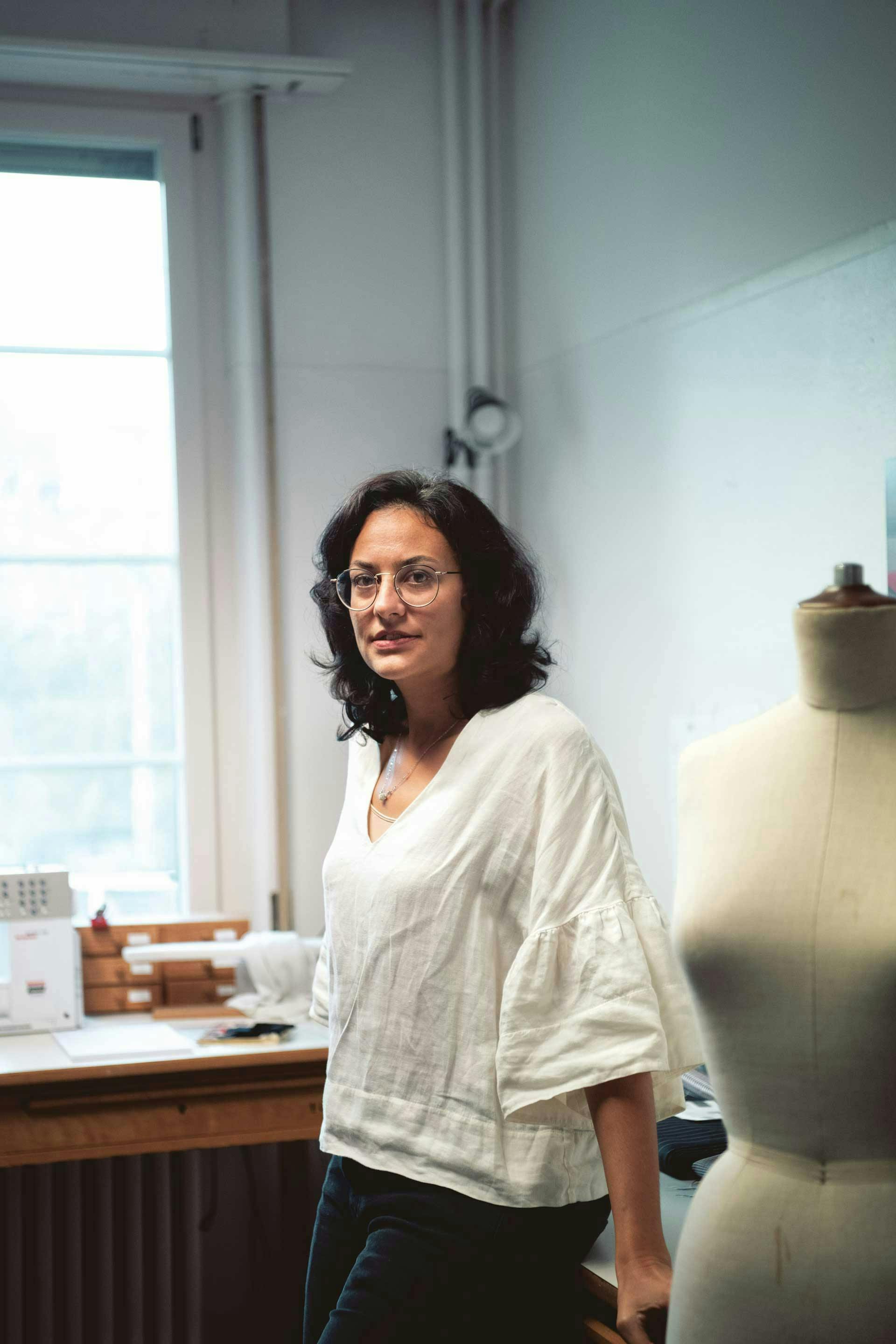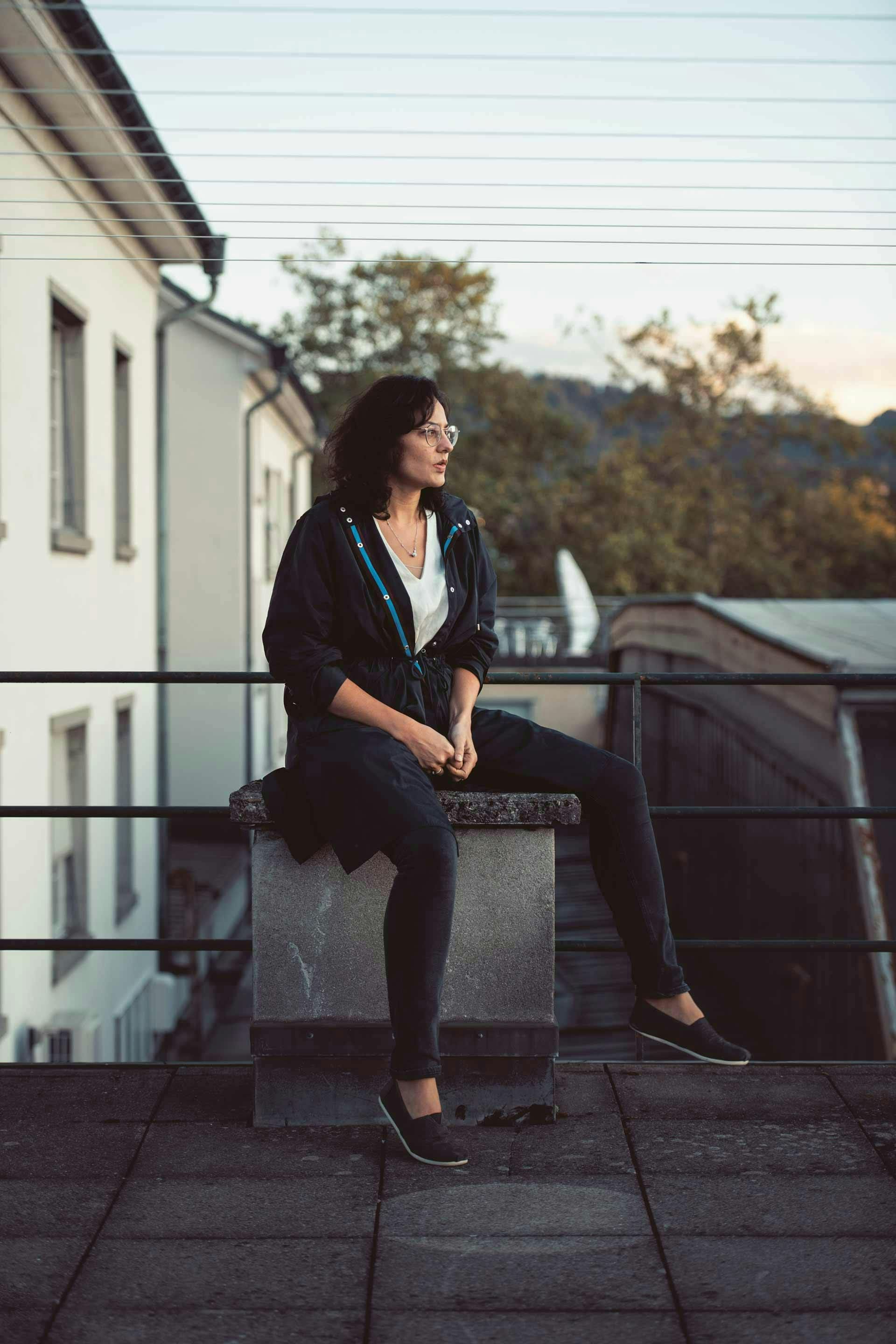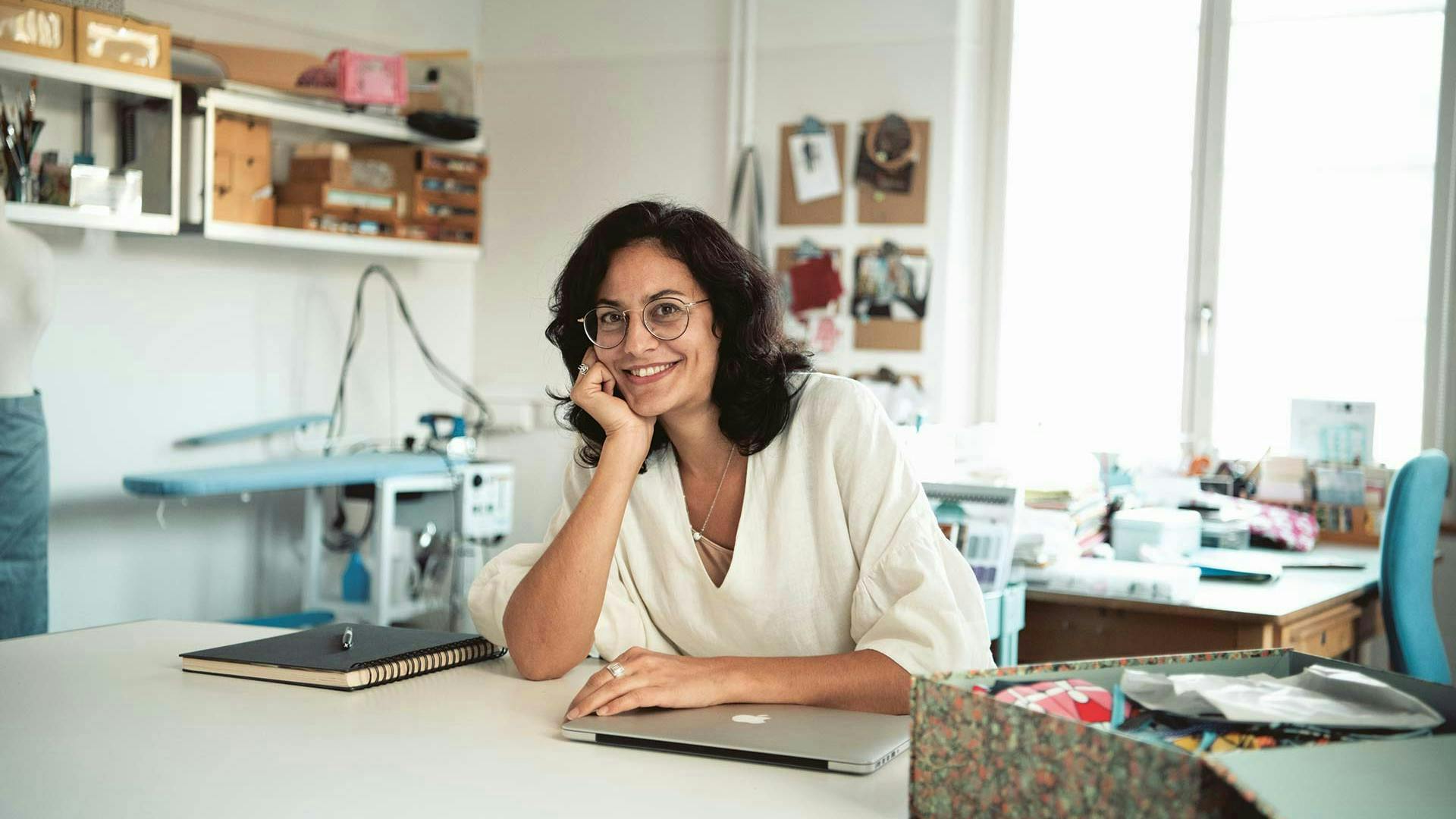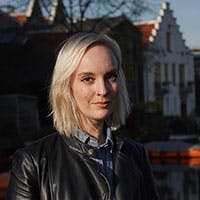Talking ethical entrepreneurship and fashion with Faloa’s Franziska Walser
Repackaged by Lester Isaac Simon
Faloa is an online luxury-fashion marketplace featuring vegan fashion and accessories, including products from designers who are dedicated to environmental protection, fair working conditions and animal-friendly materials. Franziska’s innovative startup challenges the fashion industry while offering beautiful, well-made items to women looking for high-end vegan fashion.
Her professional history is a contrast of tech-based roles in software and engineering and involvement in vegan startups. While continuing to work in information technology, she began her career in vegan business in 2015 when she founded the Plant Based Innovation Lab.
We sat down with Franziska to learn what led to her becoming a founder and hear her thoughts on the fashion industry, entrepreneurship, sustainability and more.

Are you vegan?
Yes, I’ve been a vegan for a very long time, for thirteen years. I’ve been watching the vegan business market the whole time, because how the market evolves is also one of my interests. Food is currently a very hot topic regarding plant-based businesses, and fashion is something that is on the rise.
I always had a lot of ideas for food businesses, but they never really touched my heart. Then I realized that I do have that passion for fashion. I like to have high-quality bags and shoes that really last, and this brought me into the fashion space.
Was the Plant Based Innovation Lab the first time you incorporated veganism into your professional life?
Yes, exactly. This was the starting point for me. I have been in the startup space for seven years now, and I started by attending startup weekends. During that time, I developed a deep interest in startups and in this way of working. I started the Plant Based Innovation Lab by myself, and this was the first project to bring together my passion and interest for plant-based businesses and for startups. The main idea was to help other people get the first taste of building their own project or business.
From my experience, it all boils down to communication with people, especially with your team. The way I like to work or communicate or interact with people is not the same as other people might prefer to communicate.
Did you do it alone or build a team?
I built a team around me. Luckily, through social media, I found a very good team, actually. All of us are very motivated, and we get to learn new things. I was very happy with that.
Did you make any mistakes your first time that you’ve corrected?
From my experience, it all boils down to communication with people, especially with your team. The way I like to work or communicate or interact with people is not the same as other people might prefer to communicate. So I realized that with every person, you really have to set up an individual relationship and to see how this person likes to work and communicate. That was one of the main lessons and my main mistake. Another mistake is that there is never enough time! I haven’t corrected that yet; it’s something that always remains.
Are there any notable successes from the Innovation Lab?
Yes, there were several projects that turned into businesses. Not exactly the business they were working on or the one they pitched during the event, but it enabled them to pursue their own projects. And when they finally started working on their projects and making a living with them, they realized they could do that for their professional lives.
Are the Plant Based Innovation Lab and the Vegan Entrepreneur's Network connected?
The v-entrepreneurs came out of the Plant Based Innovation Lab. It started very small, actually – just as network events in Zurich, business lunches and some get-togethers in the evenings.

It evolved quickly because people were attracted to the network. Then my sister moved to Berlin, and she built up a chapter for the v-entrepreneurs there. Berlin is a hotspot for vegan business, and it really had momentum there.
A friend noticed the organization and took it to the Netherlands, so they opened up a chapter there, and from that moment on, the network spread almost across the globe. It wasn’t our intention to grow globally, but people caught on to the idea of networks for vegan and plant-based business owners to support each other. And now we also have chapters in Silicon Valley and San Francisco. It has a life of its own. It’s like with every business: you need to have momentum.
How do you balance your time between the Vegan Entrepreneurs Network and Faloa?
The goal is to make a living out of Faloa, so that means most of the time is dedicated to that business. The Vegan Entrepreneurs Network is something me and my sister do on the side now because it has become voluntary work. Before we did it professionally, but we decided to pursue Faloa instead.
What are the differences you’ve found between building the Vegan Entrepreneurs Network and a fashion business?
The main difference is in the setup. The network is something that grew organically over a time of four years, so it feels very natural. Faloa has been set up as a business from the beginning. It was never our plan to do it on a voluntary basis. We have a very clear vision, and we are also investing more time and money in Faloa.
And what about the difference in the type of team you put together?
When I compare them, the team from the Vegan Entrepreneurs Network are very focused on food and food-related topics, and they like things that can connect people. They’re very outgoing people of all ages and from all backgrounds, and what they share is a love for startups and for plant-based business in general. Faloa has a very strong fashion focus, so people that are attracted to Faloa are more art and fashion based.
Their interests make them a little bit different. But in the end they all share the vision of creating something good for the environment, for animals and for humans. It is the core value they all have in common, the entrepreneurs and people from Faloa. That’s the beauty of it.
Do you spend time together as a team outside of work?
The core team is me and my sister; the stylists and photographers, who are freelancers; and our developers, who are partners. The developers are in another country, but we meet them regularly when they’re in Germany or Switzerland, and the stylists and photographers are friends so that makes it easy. It’s not like a structure you have in a company, there are no work hours and spare time. It’s difficult to say when you’re meeting someone for business and when you’re meeting them for fun; it mixes together and ideas evolve out of these meetings.
Ideally, we want to be the main marketplace for vegan, high-end fashion. Our goal is to have a tribe around Faloa where we can share our values and really have an impact. We want people to think of Faloa when they think of vegan fashion. And we’re hoping to live off it… at least in five years.
Do you want to work with more indie designers, or someone like Stella McCartney, who is the most well known in vegan fashion?
We would love to work with Stella McCartney because she shares the same values that we have, but currently this is not possible because we are just starting out. Maybe in three years, we’ll be able to have a listing of her products.We also like smaller designers because they try new materials and they make very small collections that are produced in Switzerland or Italy where you can really control the production.
Producing sustainably on a very large scale, like Stella McCartney, is very very difficult. In those terms, working with indie designers makes it easy for us to be sure the clothes are made under fair conditions and don’t harm the environment.
So, the starting point is to take the things that do the least harm to the environment and animals, and from there we can go a step further and develop new materials that are super sustainable.
Where do you like to shop for sustainable clothing, if not through Faloa?
I shop for my fashion directly from designers. It’s a special situation because a lot of them have Kickstarter campaigns and we are very interested in helping them be successful so I buy from their collections. I don’t own much clothing, because the most important thing for me is that it has to be sustainable, and it has to be fashionable, and it has to be fair, and it has to be vegan. This doesn’t make it easy to find things, but I prefer things that are aligned with my values.
Have you experienced pushback from the fashion industry when discussing Faloa?
Yes, this is normal with every business, but there are two main topics that always come up. One is online shopping. The feedback I’ve received is that consumers are not into online shopping, and from the business side online shopping is not very profitable. Investors are very critical when it comes to online shopping.
From the fashion standpoint there is criticism about the materials used in vegan fashion, like polyurethane. One of the main arguments is that it is not natural and it’s polluting our oceans. But Kering did a study with a sustainable organization and they found that polyurethane is still two-thirds less problematic for the environment [than natural leather]. The best would be to not use leather at all, but we are not there yet.
So, the starting point is to take the things that do the least harm to the environment and animals, and from there we can go a step further and develop new materials that are super sustainable. That’s always a point of discussion with the traditional fashion industry.
In addition to being a founder your career is quite tech based. How do you balance those two roles?
Because these two worlds are so different I sometimes really struggle to switch between them. You communicate one way in IT and you communicate in a different way in fashion because there are real differences. The only balance I find is that I’m fully responsible for the technical stuff here at Faloa. That means I can interweave these two different sectors. but I always have to kind of actively recalibrate myself. I have the IT hat when I’m an engineer doing software and development, and then I have my Faloa hat and I communicate in a different way with different people.
This interview was originally published in Startup Guide Switzerland in January 2020.
All photos: Startup Guide Switzerland

